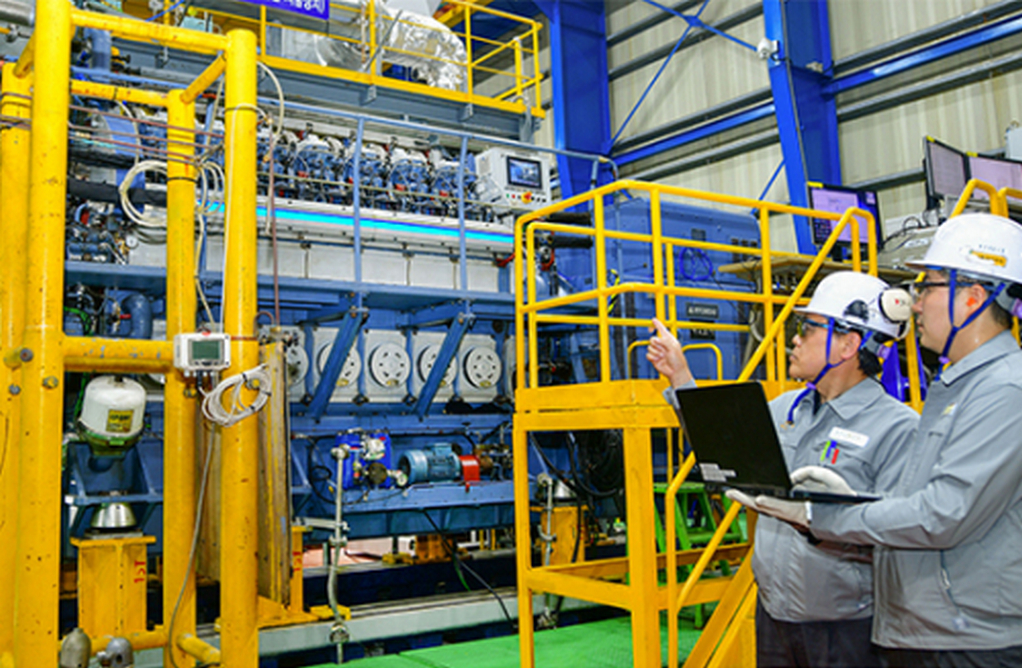Hyundai Heavy Industries successfully verified the performance of a recently developed 1.5MW-class LNG/hydrogen engine, which can selectively use diesel and a mixture of LNG and hydrogen to reduce emissions. Hyundai Heavy says the engine is a first step toward hydrogen-fueled engines.
In performance tests, the engine met IMO Tier 3 standards and has low carbon dioxide and methane slip.
Ship operation effect will be maximized if LNG and hydrogen engines are applied to liquified hydrogen carriers, the company said, as the engine can be fueled by Boil-off gas (BOG) generated during transportation.
The scope of application of LNG and hydrogen engines is not limited to ships. With a long lifespan and excellent load-following performance to control the power generation output according to fluctuations in the electric load, the engine is also expected to be used in small-scale stationary power generation and distributed power generation.
Hyundai Heavy Industries Group plans to continue R&D on LNG and hydrogen hybrid engines and complete the development of an engine that increases the proportion of hydrogen by 2023. Fully hydrogen-fueled engines will be developed in 2025.
Tags: BOG, Engine, HHI, Hydrogen, IMO Tier 3, LNG



Recent Posts
Robert Allan Ltd. to Design Fully Electric AmpRA 3600 Tug for Tianjin Port
U-Ming Marine Conducts First Bunkering of FAME B24 Biofuel
DNV Validates Electric Hydrogen’s HYPRPlant for Safety, Efficiency and Commercial Readiness
Nepal Eyes Green Hydrogen Future with Policy Push and Hydropower Potential
India Tests First Hydrogen-Powered Rail Coach at ICF Chennai
Scandlines Nears Delivery of Zero Emissions Ferry Following Successful Sea Trials
India faces emission roadblocks with rising net-zero demands
Green Energy Resources invests in two electric Liebherr LHM 550